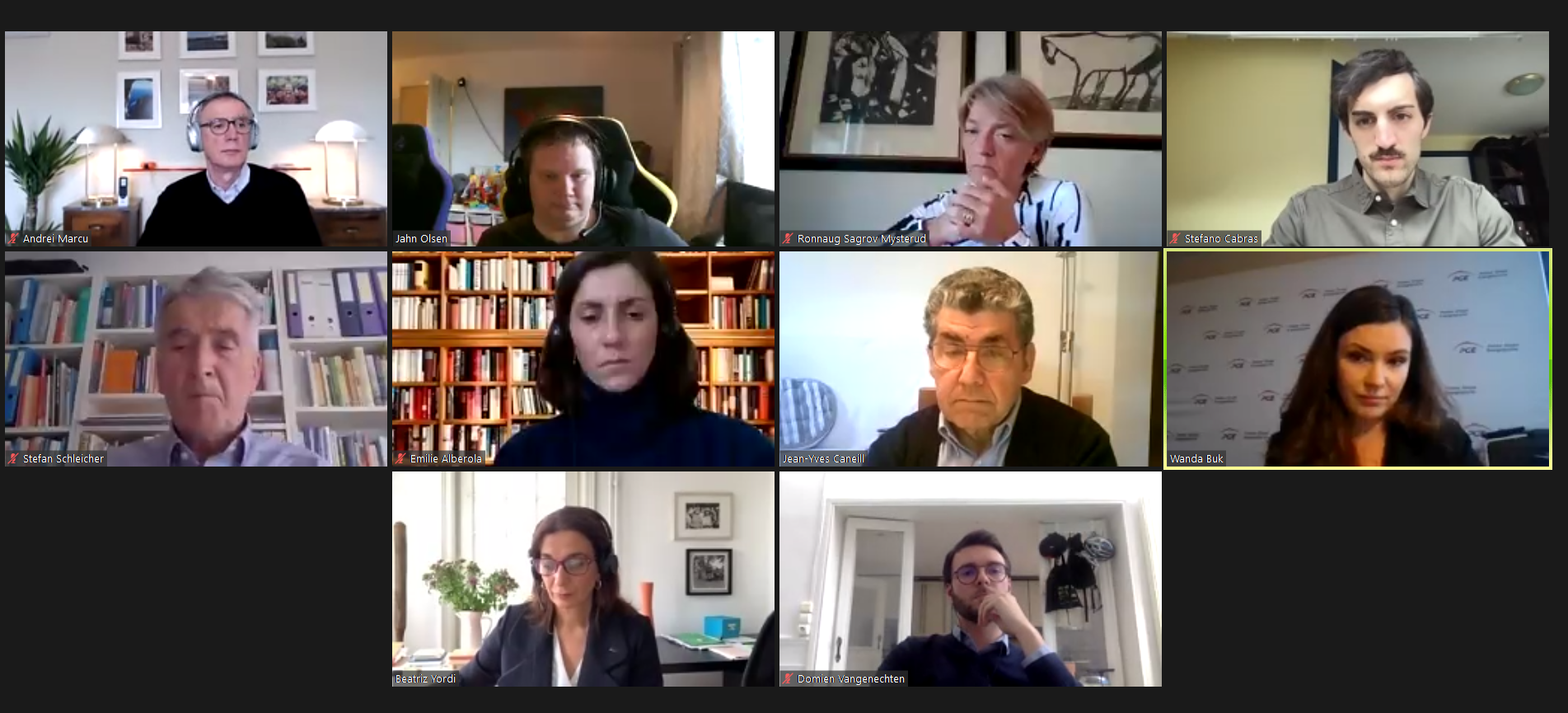Medium-term forecast presented in the State of the EU ETS Report shows that carbon prices may exceed 100 euro per tonne by 2030. – That is going to be a killer for our enterprises – stated Wanda Buk from Polska Grupa Energetyczna (PGE) which argues for safeguard measures against speculation.
State of the EU ETS Report by European Ronudtable on Climate Change and Sustainable Transition made, BloombergNEF and Wegener Center states that CO2 emission prices are to rise to over 100 euro per tonne by the end of this decade. 60 percent of people surveyed for the report argued for EU ETS reform.
Carbon prices being too high are not fostering just energy transition, especially in highly coal-reliant regions – stated Wanda Buk, vicepresident for regulatory affairs in Polish state energy utility Polska Grupa Energetyczna. She reminded that PGE spent last year about 1.8 billion of euros on EU ETS allowances. – We cannot commit to conduct more green investments just because CO2 prices rise above 44 euro per tonne – she explained.
– Low income states don’t have sufficient funds to finance their energy transition – argued Wanda Buk.
PGE together with colleagues from the energy sector in Bulgaria, Croatia, Czech Republic, Estonia, Hungary and Romania we jointly called on the Commission to increase the Modernisation Fund should the EU decide to significantly increase the 2030 target to 55 percent. State of the EU ETS Report argues for more measures triggering energy transition like increasing Modernisation Fund. EU ETS is not
According to Wanda Buk, the EU ETS seems to be unarmed to prevent it from market speculation eventually leading to losing its main environmental, but not fiscal objective. Developing and maintaining these safeguard measures is key for having broad social acceptance across the EU towards forthcoming policy changes.
Wojciech Jakóbik









